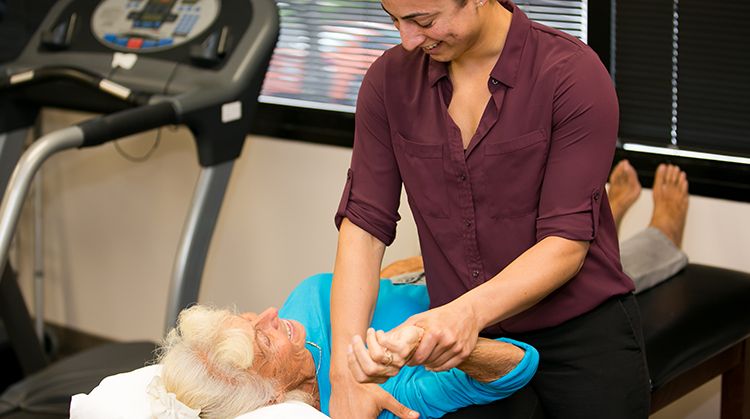4 WHAT TO Expect After Shoulder Replacement Surgery
Shoulder replacement (arthroplasty) is really a major surgery where all or area of the shoulder joint is replaced. This surgery is done when other conservative treatments no more provide treatment or when severe pain limits your capability to use your shoulder. It could address pain and enhance the usage of your shoulder, however the recovery time is significant. In addition, it requires some work to obtain the full advantage of the surgery.
In the event that you or someone you understand needs shoulder replacement surgery, knowing what things to expect can help you’ve got a better outcome.
Listed below are four what to know:
1. Managing pain after surgery.
You may expect some pain after shoulder replacement or any major surgery. Your pain will decrease as you heal. A lot of people report only trace to mild pain once they have fully recovered and rehabilitated from shoulder replacement surgery. This can be a great improvement from the pain that you likely experienced before surgery.
Use your physical therapist to comprehend positions and exercises that decrease pain and assist you to heal. Use your surgeon and pharmacist to comprehend the dosing of pain medications after surgery. You should have an idea to wean off opioid medications regularly.
Research implies that taking prescribed opioids before surgery results in worse pain management after surgery. Consider weaning off these medicines ahead of surgery with the supervision of one’s health care team. This assists together with your pain management after surgery.
2. A short dependence on help and assistance.
You will probably maintain a sling for weeks. You won’t have the ability to use your arm for anything except prescribed exercises. Your PT will educate you on specific exercises to market healing.
Consider having ready-to-eat meals which are easy to prepare. You might set things up in the home that you’ll require regularly at an easy-to-reach level. Button-up shirts are easiest to wear when you cannot lift your arm.
Let friends and family or family understand that you’re having major surgery, to allow them to support you when you recover.
3. Difficulty sleeping.
Initially, sleep could be difficult after surgery, but will improve with good habits. Good sleep habits, also called sleep hygiene include:
- Avoiding large meals and caffeine before bedtime.
- Limiting or avoiding alcohol.
- Avoiding nicotine.
- Removing gadgets from the bed room.
- Having a normal set bedtime.
Getting a well-supported position will be important. Talk to your physical therapist about positions to help keep your shoulder protected when you sleep.
4. Improved mobility and function.
Physical therapy is really a critical section of recovery following a shoulder replacement surgery. Before surgery, a physical therapist might help you enhance your shoulder and spine movement to help keep your shoulder as strong and mobile as you possibly can before time of surgery.
After surgery, a hospital physical therapist will educate you in what precautions to take when you are home and what movements in order to avoid through the initial healing phase. In addition they will teach you how exactly to manage your affected arm also to enter and out of bed.
After discharge, continuing physical therapy is vital to make sure your safe recovery. Your physical therapist will continue to work with one to progress your exercises at the proper times in the healing up process. They will help you to get back your flexibility, enhance your strength and function, and finally help you get back again to your everyday activities, job, or sport.
Make sure to tell your physical therapist your targets, so you both can focus on the most important thing for you.
Physical therapists are movement experts who improve standard of living through hands-on care, patient education, and prescribed movement. It is possible to contact a physical therapist directly for an assessment. To discover a physical therapist locally, visit Look for a PT.
Additional Resources
Cox RM, Brolin TJ, Padegimas EM, et al. Outcomes of bilateral shoulder arthroplasties: an assessment of bilateral total shoulder arthroplasties and bilateral reverse shoulder arthroplasties. Clin Orthop Surg. 2019;11(3):316–324. Article Summary in PubMed.
Friedman RJ, Eichinger J, Schoch B, et al. Preoperative parameters that predict postoperative patient-reported outcome measures and flexibility with anatomic and reverse total shoulder arthroplasty. JSES Open Access. 2019;3(4):266–272. Article Summary in PubMed.
Goplen CM, Verbeek W, Kang SH, et al. Preoperative opioid use is connected with worse patient outcomes after total joint arthroplasty: a systematic review and meta-analysis. BMC Musculoskelet Disord. 2019;20(1):234. Article Summary in PubMed.
Menendez ME, Lawler SM, Carducci MP, Ring D, Mahendraraj KA, Jawa A. Delayed hospital discharge after total shoulder arthroplasty: why, and who’s at an increased risk? JSES Open Access. 2019;3(3):130–135. Article Summary in PubMed.
Parsons M, Routman HD, Roche CP, Friedman RJ. Patient-reported outcomes of reverse total shoulder arthroplasty: a comparative risk factor analysis of improved versus unimproved cases. JSES Open Access. 2019;3(3):174–178. Article Summary in PubMed.
Goodman J, Lau BC, Krupp RJ, et al. Clinical measurements versus patient-reported outcomes: analysis of the American Shoulder and Elbow Surgeons physician assessment in patients undergoing reverse total shoulder arthroplasty. JSES Open Access. 2018;2(2):144–149. Article Summary in PubMed.
Leroux TS, Zuke WA, Saltzman BM, et al. Safety and patient satisfaction of outpatient shoulder arthroplasty. JSES Open Access. 2018;2(1):13–17. Article Summary in PubMed.
Schleich C, Bittersohl B, Antoch G, Krauspe R, Zilkens C, Kircher J. Thickness distribution of glenohumeral joint cartilage: a standard value study on asymptomatic volunteers using 3-tesla magnetic resonance tomography. Cartilage. 2017;8(2):105–111. Article Summary in PubMed.
